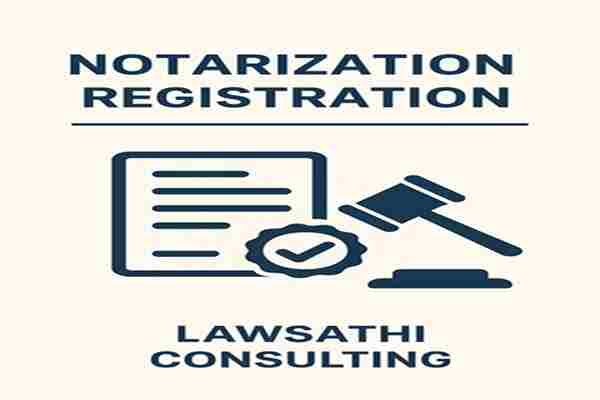
Notarization and Registration
Notarization and Registration serve very different legal purposes, though people sometimes confuse them. Here’s a comparison for you:
🔹 Notarization
Meaning: Attestation of documents by a Notary Public under the Notaries Act, 1952.
Purpose:
To verify the authenticity of signatures and identities of parties.
To certify that a document was executed voluntarily.
Prevents fraud and gives the document a presumption of genuineness.
Documents commonly notarized:
Affidavits, declarations, undertakings.
Powers of attorney.
Agreements (not compulsorily registrable).
Copies of documents (certified as true copy).
Legal effect:
Does not create or transfer any rights in property.
Acts as prima facie evidence of execution, but can be challenged.
Fee: Nominal, fixed by State Government.
Example: A notarized rent agreement for 11 months.
🔹 Registration
Meaning: Recording of documents in the official public records maintained by the Sub-Registrar of Assurances under the Registration Act, 1908.
Purpose:
To give documents public notice and legal validity.
To protect rights and prevent fraud in property transactions.
Creates indefeasible title against third parties (subject to law).
Documents requiring compulsory registration (Sec. 17, Registration Act, 1908):
Sale deeds of immovable property.
Gift deeds.
Lease deeds above 11 months.
Partition deeds.
Mortgage deeds.
Legal effect:
Document becomes legally enforceable.
Without registration, such documents are inadmissible in evidence (except for collateral purposes, as per Sec. 49).
Fee: Higher, includes registration charges and stamp duty (varies by state).
Example: A registered sale deed transferring ownership of property.
✅ Key Differences (At a Glance)
Aspect Notarization Registration
Authority Notary Public Sub-Registrar of Assurances
Law Notaries Act, 1952 Registration Act, 1908
Purpose Authentication of signatures, genuineness Legal validity, public notice, transfer of rights
Effect Prima facie proof, rebuttable Creates enforceable rights, binding against third parties
Fee Nominal Stamp duty + registration charges
Scope Mostly optional, unless required Mandatory for certain transactions (esp. immovable property)
👉 In short:
Notarization = proof of execution (identity + genuineness).
Registration = legal enforceability (title + rights against world).
📑 Examples of Documents – Notarization vs. Registration
Document Notarization Registration Remarks
Sale Deed (immovable property): Notarization Not required, Registration Compulsory (Sec. 17, Registration Act, 1908), Remarks Transfers ownership; without registration, invalid.
Gift Deed (immovable property): Notarization Not required, Registration Compulsory, Remarks Must be registered to take effect.
Lease Deed (≤ 11 months): Notarization Generally notarized, Registration not compulsory, Remarks Common for short-term rent agreements.
Lease Deed (> 11 months): Notarization Not required, Registration Compulsory, Remarks Must be registered; else unenforceable in court.
Affidavit / Declaration / Undertaking: Notarization Notarization required, Registration not needed, Remarks Used in courts, offices, etc.
Disclaimer: This article is for educational and informational purposes only. It provides a general understanding of legal remedies but does not constitute legal advice. For specific legal guidance, you can consult to legal expert.




